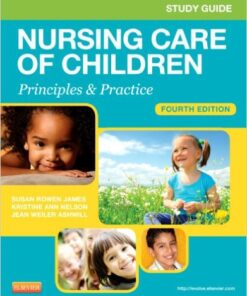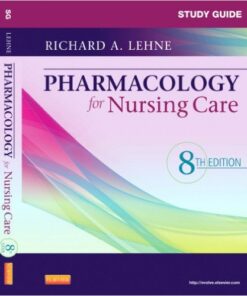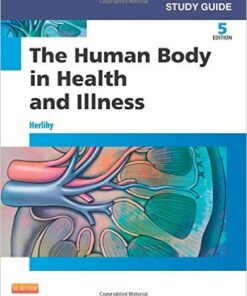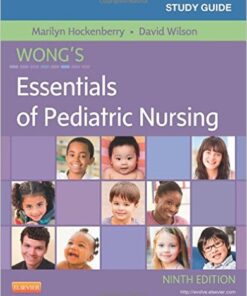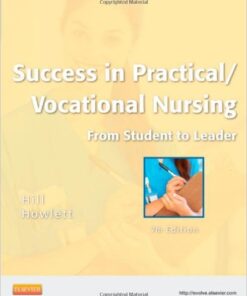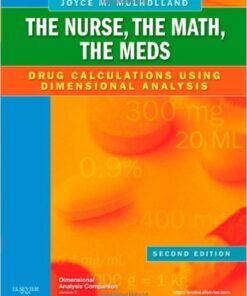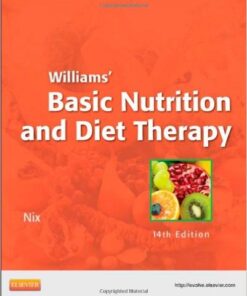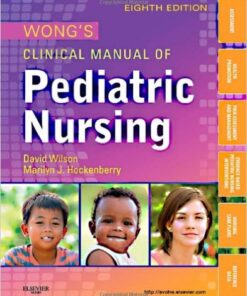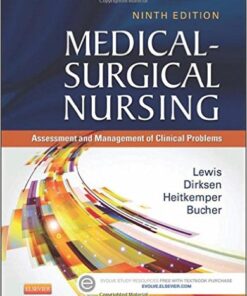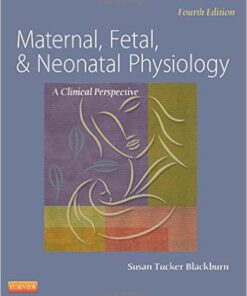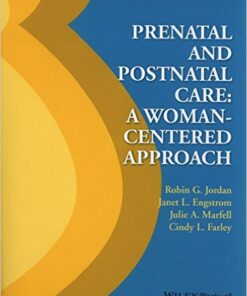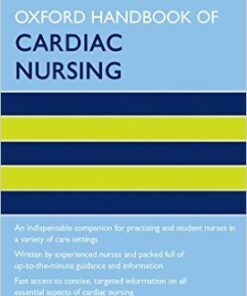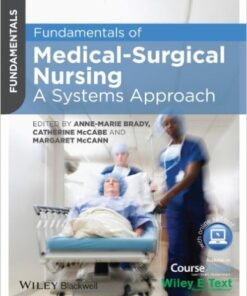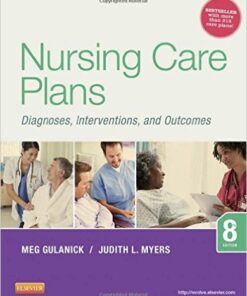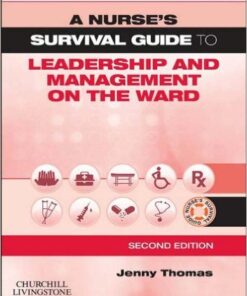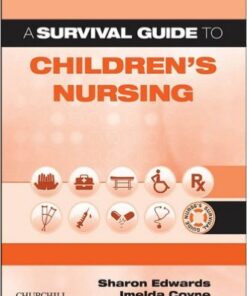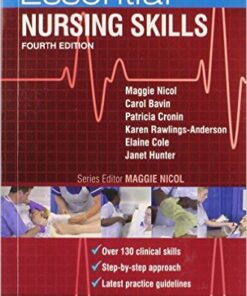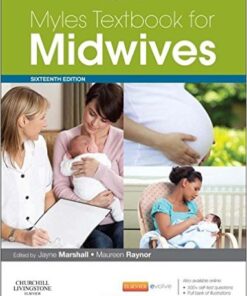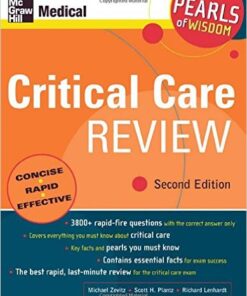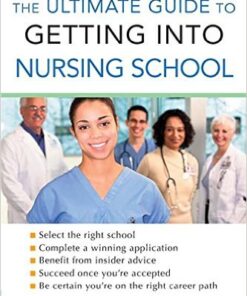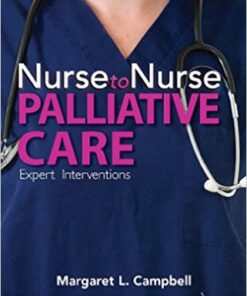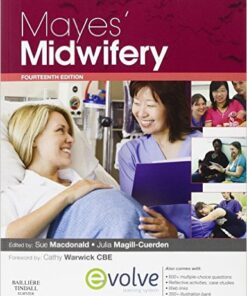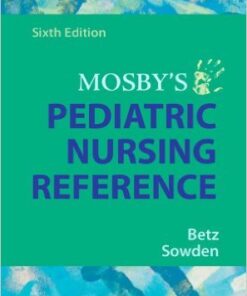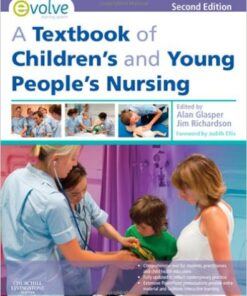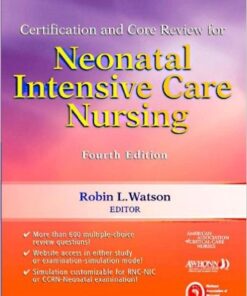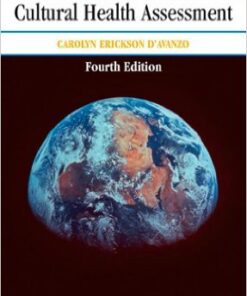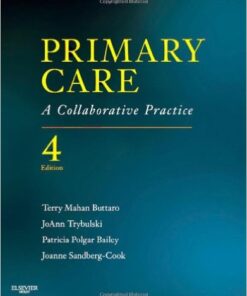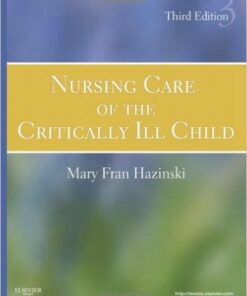MIDWIFERY & NURSING
Study Guide for Nursing Care of Children: Principles and Practice, 4e 4th Edition
MIDWIFERY & NURSING
Study Guide for Pharmacology for Nursing Care, 8e 8th Edition
MIDWIFERY & NURSING
Study Guide for The Human Body in Health and Illness, 5e 5th Edition
MIDWIFERY & NURSING
Study Guide for Wong’s Essentials of Pediatric Nursing, 9e 9th Edition
MIDWIFERY & NURSING
Success in Practical/Vocational Nursing: From Student to Leader, 7th Edition 7th Edition
MIDWIFERY & NURSING
The Nurse, The Math, The Meds: Drug Calculations Using Dimensional Analysis, 2e 2nd Edition
MIDWIFERY & NURSING
MIDWIFERY & NURSING
MIDWIFERY & NURSING
Medical-Surgical Nursing: Assessment and Management of Clinical Problems, 9th Edition
MIDWIFERY & NURSING
MIDWIFERY & NURSING
MIDWIFERY & NURSING
Oxford Handbook of Cardiac Nursing (Oxford Handbooks in Nursing) 2nd Edition
MIDWIFERY & NURSING
Fundamentals of Medical-Surgical Nursing: A Systems Approach 1st Edition
MIDWIFERY & NURSING
MIDWIFERY & NURSING
Nursing Care Plans: Diagnoses, Interventions, and Outcomes, 8e 8th Edition by Meg Gulanic
MIDWIFERY & NURSING
A Nurse’s Survival Guide to Leadership and Management on the Ward
MIDWIFERY & NURSING
MIDWIFERY & NURSING
MIDWIFERY & NURSING
Myles Textbook for Midwives, 16e 16th Edition by Jayne E. Marsh
MIDWIFERY & NURSING
Critical Care Review: Pearls of Wisdom, Second Edition 2nd Edition
MIDWIFERY & NURSING
The Ultimate Guide to Getting into Nursing School 1st Edition
MIDWIFERY & NURSING
MIDWIFERY & NURSING
Mayes’ Midwifery: A Textbook for Midwives, 14e 14th Edition by Sue Macdonald
MIDWIFERY & NURSING
MIDWIFERY & NURSING
A Textbook of Children’s and Young People’s Nursing, 2e 2nd Edition
MIDWIFERY & NURSING
Certification and Core Review for Neonatal Intensive Care Nursing, 4e
MIDWIFERY & NURSING
MIDWIFERY & NURSING
MIDWIFERY & NURSING
MIDWIFERY & NURSING
Introduction
Expectant mothers have a lot to consider when it comes to their pregnancy and childbirth. Midwifery and nursing are two important healthcare professions that can provide invaluable support and guidance throughout the process. The Benefits of Midwifery and Nursing: A Guide for Expectant Mothers is an essential resource for any woman looking to learn more about these two professions and how they can help her during this special time. This guide provides an overview of the benefits of midwifery and nursing, including information on the roles of each profession, the services they provide, and the advantages of having a midwife or nurse as part of your care team. With this comprehensive guide, expectant mothers can make informed decisions about their healthcare and ensure they receive the best possible care during their pregnancy and beyond.
The Role of Midwives and Nurses in Prenatal Care
Midwives and nurses play an essential role in providing prenatal care to pregnant women. They are responsible for monitoring the health of both the mother and baby throughout the pregnancy, providing education and support, and helping to ensure a safe delivery.
Midwives are healthcare professionals who specialize in providing care to pregnant women and their babies. They provide comprehensive care throughout the entire pregnancy, from conception to postpartum. Midwives are trained to assess the health of both the mother and baby, monitor the progress of the pregnancy, and provide education and support to the mother. They also provide guidance on nutrition, exercise, and lifestyle choices that can help ensure a healthy pregnancy.
Nurses are also important members of the prenatal care team. They provide direct patient care, such as taking vital signs, administering medications, and performing tests. Nurses also provide emotional support to the mother and her family, helping them to understand the changes that occur during pregnancy and preparing them for labor and delivery.
Midwives and nurses work together to provide comprehensive care to pregnant women. They collaborate with other healthcare providers, such as obstetricians and pediatricians, to ensure that the mother and baby receive the best possible care. They also provide education and support to the mother and her family, helping them to make informed decisions about their pregnancy and childbirth.
Midwives and nurses play an essential role in providing quality prenatal care. They are dedicated to ensuring the health and safety of both the mother and baby throughout the pregnancy and beyond.
Understanding the Benefits of Midwifery and Nursing During Labor and Delivery
Labor and delivery is a critical time for both mother and baby, and having the right medical professionals on hand can make all the difference. Midwives and nurses are two of the most important members of the labor and delivery team, and understanding their roles and benefits can help ensure a safe and successful birth.
Midwives are trained healthcare professionals who specialize in providing care to pregnant women and their babies during pregnancy, labor, and delivery. They provide comprehensive care that includes physical exams, counseling, education, and support throughout the entire process. Midwives are experts in normal, low-risk pregnancies and births, and they are often the first line of care for expectant mothers.
Midwives offer many benefits to mothers during labor and delivery. They provide personalized care and support, helping to create an environment that is comfortable and calming for the mother. Midwives also have extensive knowledge of natural childbirth techniques, such as breathing and relaxation exercises, which can help reduce pain and stress during labor. Additionally, midwives are skilled at recognizing potential problems and taking appropriate action to ensure the safety of both mother and baby.
Nurses are another essential part of the labor and delivery team. Nurses provide a wide range of services, including monitoring the mother’s vital signs, administering medications, and assisting with procedures. They also provide emotional support to the mother and her family, helping them to feel more comfortable and secure during the birthing process.
Nurses are highly trained professionals who are knowledgeable about the latest medical advances and treatments. They are able to recognize potential complications and take the necessary steps to ensure the safety of both mother and baby. Nurses also provide valuable education and support to the mother and her family, helping them to understand the birthing process and prepare for the postpartum period.
Midwives and nurses play an important role in ensuring a safe and successful labor and delivery. Their expertise and experience can help to ensure that both mother and baby have the best possible outcome. Understanding the benefits of midwifery and nursing during labor and delivery can help to ensure that the mother and her family receive the highest quality of care.
Postpartum Care and Support from Midwives and Nurses
Postpartum care and support from midwives and nurses is essential for the health and wellbeing of new mothers. It is important to ensure that women receive the best possible care during this time, as it can be a difficult and overwhelming experience.
Midwives and nurses are trained professionals who specialize in providing postpartum care and support. They provide physical, emotional, and educational support to new mothers. Midwives and nurses are knowledgeable about the changes that occur during pregnancy and childbirth, and they can help new mothers adjust to their new roles. They can also provide advice on breastfeeding, nutrition, and other postpartum issues.
Midwives and nurses can provide a variety of services to new mothers. They can provide physical assessments, such as checking blood pressure and weight, and they can also provide emotional support. They can help new mothers cope with the stress of adjusting to life with a newborn, and they can provide education about infant care and parenting. Midwives and nurses can also provide referrals to other healthcare providers, such as lactation consultants or mental health professionals.
Midwives and nurses can also provide support to partners and family members. They can provide information about how to best support the new mother, and they can provide resources for partners and family members to better understand the changes that occur during postpartum.
Midwives and nurses are an invaluable resource for new mothers. They provide physical, emotional, and educational support, and they can help new mothers adjust to their new roles. They can also provide referrals to other healthcare providers, and they can provide support to partners and family members. Postpartum care and support from midwives and nurses is essential for the health and wellbeing of new mothers.
The Importance of Education and Resources for Expectant Mothers
Expectant mothers face a unique set of challenges during pregnancy, and it is important that they have access to the resources and education necessary to ensure a healthy pregnancy and delivery. Education and resources for expectant mothers can help them make informed decisions about their health and the health of their baby, as well as provide support and guidance throughout the pregnancy.
Education is essential for expectant mothers. It helps them understand the changes their body is going through, the risks associated with pregnancy, and how to best care for themselves and their baby. Expectant mothers should be educated on topics such as nutrition, exercise, prenatal care, labor and delivery, breastfeeding, and postpartum care. This knowledge can help them make informed decisions about their health and the health of their baby.
In addition to education, expectant mothers need access to resources to help them during their pregnancy. These resources can include financial assistance, emotional support, and medical care. Financial assistance can help cover the costs of prenatal care, childbirth classes, and other expenses related to pregnancy. Emotional support can come from family, friends, or support groups. Medical care is also important, as it can help detect any potential problems early on and ensure that the mother and baby are healthy.
Finally, expectant mothers should have access to information about their rights and responsibilities during pregnancy. This includes knowing their rights in the workplace, understanding their insurance coverage, and being aware of any laws or regulations that may affect them. Knowing their rights can help them make sure they are getting the care and support they need.
Education and resources for expectant mothers are essential for a healthy pregnancy and delivery. They can help expectant mothers make informed decisions about their health and the health of their baby, as well as provide support and guidance throughout the pregnancy. By having access to the right education and resources, expectant mothers can feel more confident and prepared for the journey ahead.
The Benefits of Working with a Midwife or Nurse During Pregnancy
Pregnancy is an exciting and life-changing experience, but it can also be overwhelming. Working with a midwife or nurse during pregnancy can provide invaluable support and guidance throughout the entire process.
Midwives and nurses are highly trained professionals who specialize in providing care to pregnant women. They have extensive knowledge of the physical and emotional changes that occur during pregnancy, as well as the medical conditions that may arise. Midwives and nurses are also experienced in helping women make informed decisions about their health and the health of their baby.
One of the most important benefits of working with a midwife or nurse during pregnancy is the personalized care they provide. Midwives and nurses take the time to get to know each patient and understand their individual needs. They provide comprehensive care that includes regular checkups, prenatal education, and emotional support. This helps ensure that any potential issues are identified and addressed early on.
Midwives and nurses also provide valuable information about nutrition, exercise, and lifestyle choices during pregnancy. They can help women make healthy decisions that will benefit both mother and baby. Additionally, they can provide resources and referrals for additional services such as childbirth classes, breastfeeding support, and postpartum care.
Finally, midwives and nurses are excellent sources of emotional support during pregnancy. They understand the unique challenges that come with being pregnant and can provide reassurance and encouragement. They can also provide advice and resources to help women cope with stress and anxiety.
Working with a midwife or nurse during pregnancy can be incredibly beneficial. They provide personalized care, valuable information, and emotional support throughout the entire process. With their help, women can feel confident and prepared for the journey ahead.
Conclusion
In conclusion, midwifery and nursing are two important professions that can provide expectant mothers with the support and guidance they need during their pregnancy. Midwives and nurses are trained to provide comprehensive care for pregnant women, from prenatal care to labor and delivery. They can help expectant mothers make informed decisions about their health and well-being, as well as provide emotional support throughout the pregnancy journey. With the right midwife or nurse, expectant mothers can feel confident in their choices and have a positive experience during their pregnancy.

